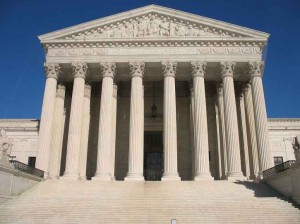Medical Malpractice Law May be Heard by Florida Supreme Court
A dispute over the constitutionality of a 2013 medical malpractice law may be headed to the Florida Supreme Court. Critics claim the law violates patient privacy rights.
In July, the 1st District Court of Appeal upheld the law, but attorneys in Escambia County filed a notice last week asking the Supreme Court to review the case. The dispute specifically focuses on ex parte communications, where patients’ medical records could potential be shared without their consent. For example, a defense attorney representing a physician accused of negligence could get personal health information about the patient, without the presence of their medical malpractice attorney.
Opponents of this medical malpractice law claim it poses a number of constitutional issues, including that it violates a right to privacy in the Florida Constitution. However, a three-judge panel of the appeals court struck down the ruling in July.
Court claims privacy rights waived for medical malpractice lawsuits
The plaintiff in the case, Emma Gayle Weaver, considered filing a medical malpractice lawsuit against a physician, but was hesitant due to ex-parte provisions, according to court documents. Weaver served as the representative of the estate of the late Thomas E. Weaver, whose care was the root of the malpractice allegations.
The challenge to the ex-parte provisions raised a number of constitutional issues, including arguments that the law violates the Florida Constitution’s right to privacy. The judges disagreed with Weaver’s claim, insisting these rights are not valid under the circumstances.
“It is well-established in Florida and across the country that any privacy rights that might attach to a claimant’s medical information are waived once that information is placed at issue by filing a medical malpractice claim,” said the ruling, written by Judge James Wolf, Judge Lori Rowe and Judge Ross Bilbrey. “Thus, by filing the medical malpractice lawsuit, the decedent’s medical condition is at issue.”
In 2014, the 11th U.S. Circuit Court of Appeals upheld the ex-parte change in ruling concentrating on whether the 2013 law violates the federal Health Insurance Portability and Accountability Act (HIPAA), which is designed to prevent disclosure of personal medical information, expect in certain situations.
The federal appeals court said the law was not in violation of HIPAA standards, a ruling that was also cited by the state appeals court in July.
HIPAA standards
HIPPA was passed by Congress in 1996. The law was put into action to allow millions of Americans to transfer and continue their health insurance benefits when they change or lose their jobs. It was also created to reduce healthcare fraud and abuse, implement industry-wide standards for healthcare information on electronic billing and related processes and to mandate the protection and confidentiality of private health information.
The HIPPA privacy rule requires safeguards to be put in place to protect the confidentiality of personal health information. It creates limits and conditions on the uses and disclosures that can be made without the patient’s consent. HIPAA also gives patients protections over their health information, including the right to examine and obtain a copy of their health records and request corrections.
- CBS Miami, Fight Over Medical-Malpractice Law Goes To Supreme Court http://miami.cbslocal.com/2015/08/24/fight-over-medical-malpractice-law-goes-to-supreme-court/
- Orlando Sentinel, Court Upholds Waiver of Privacy Rights in Malpractice Filings http://www.orlandosentinel.com/news/politics/os-medical-malpractice-ruling-20150721-story.html
- California Department of Health Care Services, Health Insurance Portability and Accountability Act http://www.dhcs.ca.gov/formsandpubs/laws/hipaa/Pages/1.00WhatisHIPAA.aspx
- U.S. Department of Health & Human Services, Health Information Privacy http://www.hhs.gov/ocr/privacy/hipaa/administrative/privacyrule/


 Resources
Resources
 Resources
Resources

